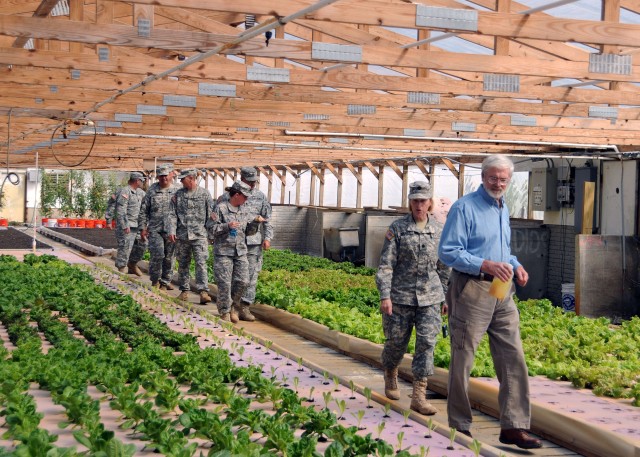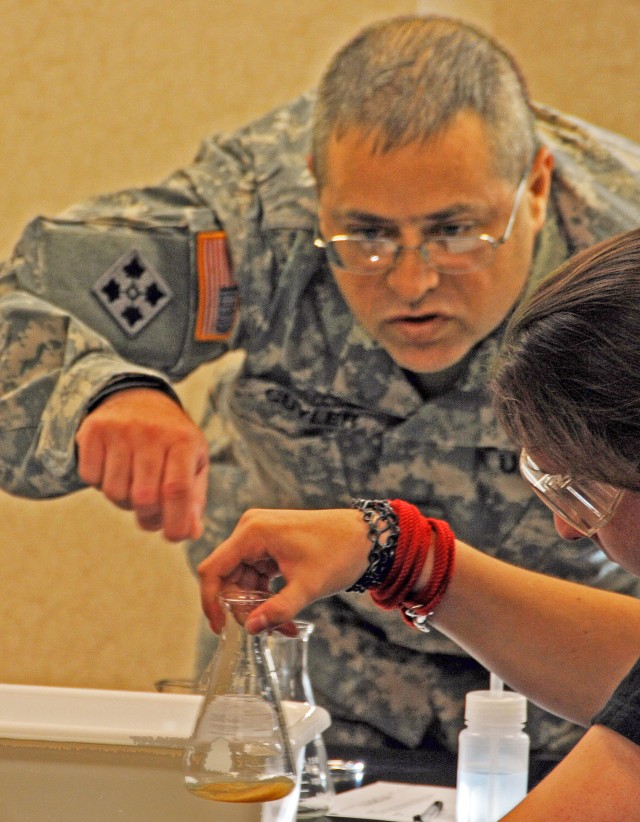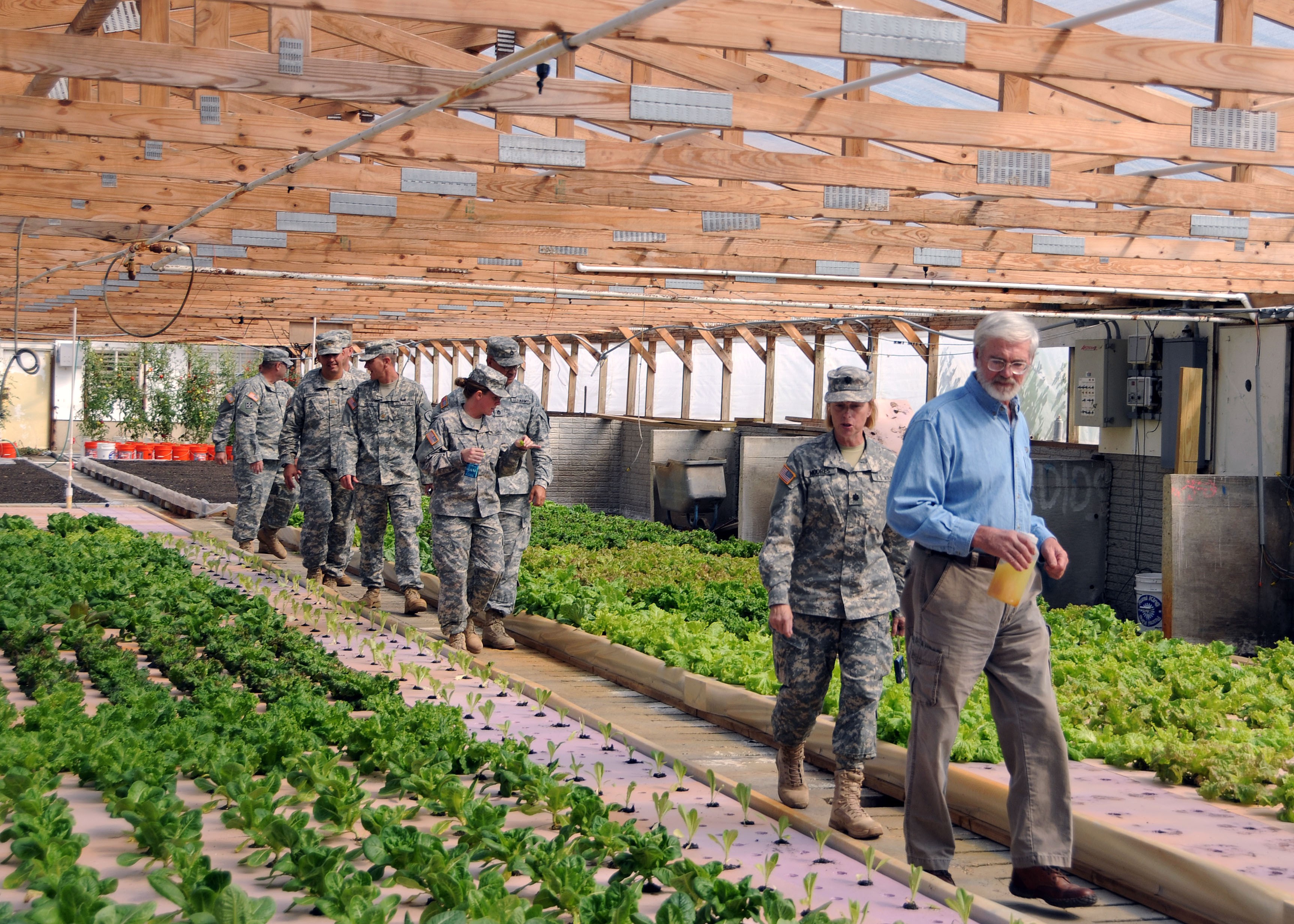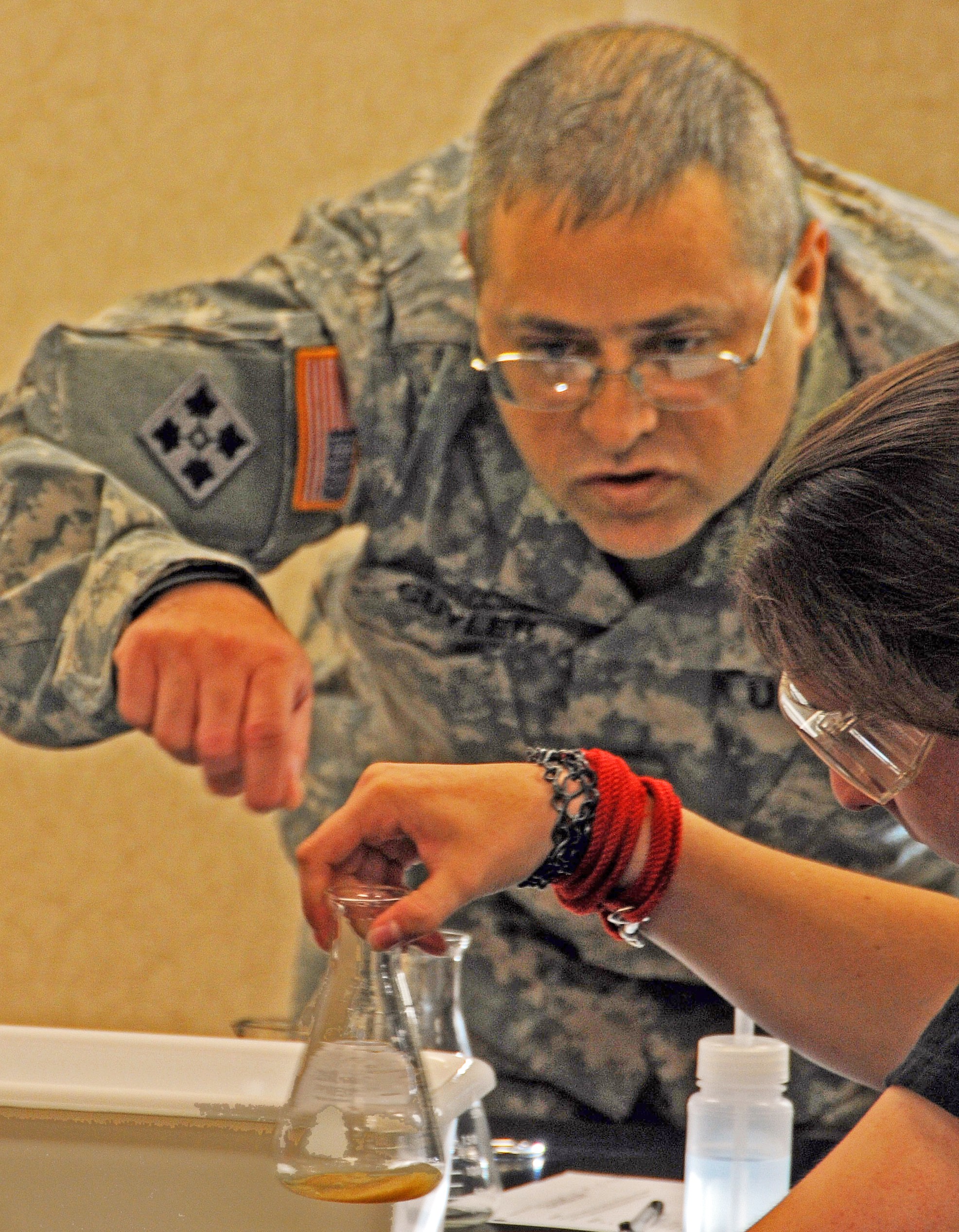CAMP ATTERBURY, Ind. (Army News Service, Sept. 14, 2010) - No field manuals exist to help Soldiers learn about growing crops, proper irrigation techniques and sanitation of livestock.
That's why Soldiers and Airmen who will deploy to Afghanistan this fall with the Indiana Agribusiness Development Team are using non-traditional military training methods to prepare for their mission.
National Guardsmen from the 3-19th Indiana ADT asked their local communities across Indiana to help with their mobiliztion training by sharing knowledge and demonstrating agriculture techniques.
Lt. Col. Robert Millsaps, the officer in charge of the agribusiness development team, said the Indiana National Guard reached out to the farmers in Indiana and they answered the call.
"I think most of the farmers realized this is their opportunity to contribute to what is going on in Afghanistan and help those people overcome the adversity they face and start anew, as a free country on their own," said Millsaps.
One such farmer, Jim Moseley, the former deputy secretary of the U.S. Department of Agriculture, invited the Indiana ADT to his home. There he provided insight into the culture of Afghanistan and gave advice to the team.
"I shared with the group they might not see a lot of results while they are there; but five years down the road they will be able to go back to Afghanistan or communicate with people in Afghanistan and know their finger prints were on the improved conditions in that country. It just takes some time," said Moseley. "But that is what winning the hearts and minds and peace building is all about."
"I understand when we think of the military, we think of terms kinetics, fighting the war and winning the war," said Moseley. "The military did its job in Afghanistan -- it did win the war. What we had difficulty with was winning the peace and that is where you lay down your rifle and pick up the plow."
The military put together a team of farmers to form the ADT. About 70 Indiana Guardsmen on the team include of a variety of farmers, veterinarians, livestock specialists, bee keepers, and many more Soldiers with critical career fields which will be used to teach the Afghanistan people how to increase yield from their crops.
These Guardsmen visited farms to increase their knowledge of livestock, how to better utilize land and irrigate crops and use different fertilizing techniques, but the next challenge begins with applying the methods and teaching the famers of Afghanistan.
The team also visited Franklin Community High School, where the Soldiers observed different teaching styles and talked with the students about which learning style worked best for them.
Craig McCaffrey, principal at Franklin Community High School, said his teachers use various teaching styles to cater to the various learning styles of students in the same room. So Soldiers had the opportunity to observe different ways of teaching the same material to different levels of students.
"We have a great teaching staff and they do a really good job instructing students of different learning styles, so everyone wanted Soldiers to come in their room," McCaffrey said. "Everyone has a personal attachment to our troops either personally or just by being an American, so everyone wanted to be a part of this."
When the bell rang and students closed their books for the school day, Millsaps took a moment and reflected on his past.
"I look back on my father and grandfather -- I think they would be very proud of the fact that I can now take what they taught me, when I was as a young man, and share it with a farmer from around the world," he said. "To help better that farmer and help make him a better living for his family. I think they would be very proud if they were here today to see this."
(Sgt. Will Hill serves with Camp Atterbury Public Affairs.)




Social Sharing